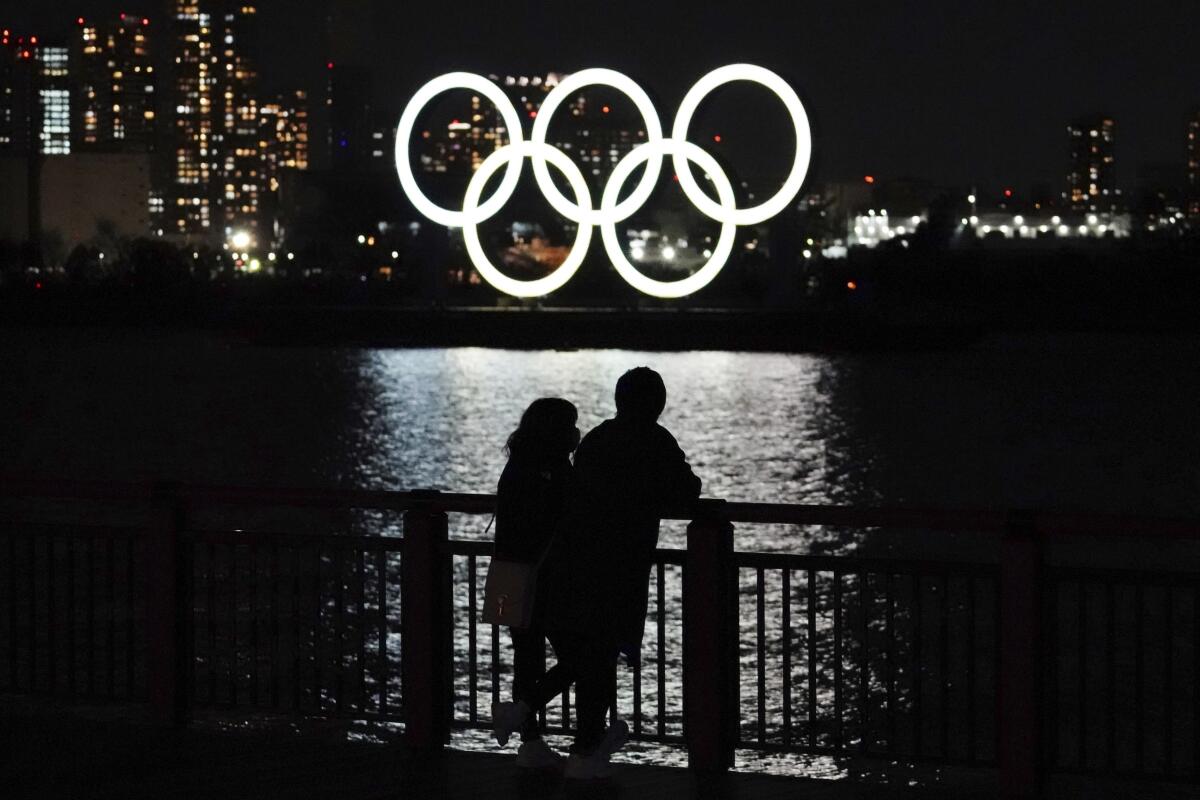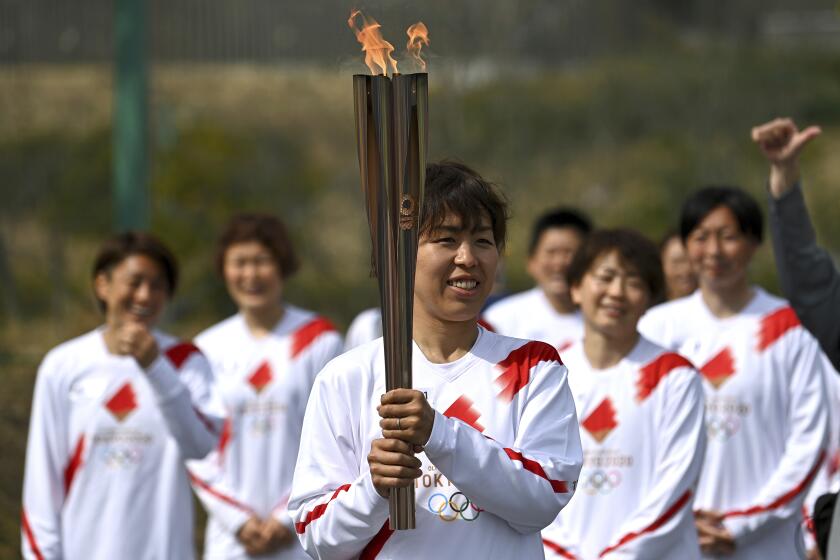This is why it’s so hard to get Tokyo Olympic ticket refunds

- Share via
When Japanese officials decided to ban foreign spectators from the upcoming Tokyo Olympics, Dennis Nivens was disappointed. This summer would mark three decades since he began traveling the world to attend the Games as a fan.
But the Hermosa Beach man felt a different sort of emotion when he learned that the authorized U.S. agency where he bought tickets to more than a dozen events was subtracting hundreds of dollars in handling fees from his refund.
“They offered a product for sale, they did not provide that product, and now they refuse to offer a full refund?” Nivens said. “It’s not right.”
An estimated 600,000 people outside of Japan purchased Olympic tickets through authorized resellers. Now, after enduring a long postponement only to be told they would not be permitted in the stands, many find themselves battling to get their money back.
Depending on the terms and conditions in each country, some ticket holders are looking at partial refunds and months of waiting. CoSport, the official American distributor, is charging 20% to 25% in nonrefundable fees and won’t begin sending checks to its 68,000 customers until summer.
Nivens, who bought 17 tickets for $2,772, could be out $554. Mary Olmos of Upland spent nearly $5,400 on a hospitality package for her family that, because of additional services, will refund at only 75%.
“That’s a lot of money,” she said. “It blows my mind.”
The torch relay for the Tokyo Olympics has begun, a 121-day journey across Japan that will end in the capital for the July 23 opening ceremony.
Ticketing for the Tokyo Olympics became more complicated when the pandemic forced a yearlong delay and then the exclusion of foreign spectators. But the Olympic marketplace was already, by its nature, complex.
Each of more than 200 national Olympic committees can select an authorized ticket reseller, or ATR, for its territory. Each ATR has the right to purchase a block of seats from the host organizing committee and put those tickets on the market back home.
The process involves currency exchange rates, credit card fees and other administrative expenses. But do those costs add up to the 20% above face value that ATRs are permitted to charge?
CoSport Chief Executive Alan Dizdarevic says his company does not turn a profit on ticket sales, making its money instead on high-end packages that include hotel rooms and hospitality events. The fees that his customers want back, he said, have already been spent on buying and processing tickets.
The New Jersey-based company contends the Japanese should refund fees because they made the decision to ban outsiders.
“We spoke to the organizing committee on the Monday after the announcement,” Dizdarevic said. “Basically, they said no.”
Tokyo 2020 officials will refund face value for all tickets sold internationally but have pushed back against reimbursing fees they neither collected nor received. The business that ATRs did with fans was “independent of Tokyo 2020 involvement,” the organizing committee said in a statement.
The U.S. Olympic & Paralympic Committee, which has selected CoSport as its ATR since 2002, declined to comment.
None of this back-and-forth provides much solace to customers, who wonder why CoSport wasn’t insured against unexpected developments. Team GB, the British ATR, reportedly carried insurance, and has now promised full refunds.
CoSport, which operates in several countries, claims it could not find suitable coverage in the U.S. market. “We’re an agent for the event, not the event organizer,” Dizdarevic said. “We’re not making the decisions at the end of the day.”
Over the years, his company has faced complaints about fees, availability of choice seats during the lottery process, and inefficiency in delivering tickets. Customers say that, in this instance, shifting terms and conditions have left them confused about amounts and schedules for refunds.
Some people wonder why CoSport has not been as accommodating as other companies during the pandemic.
“We address every complaint with utmost seriousness,” Dizdarevic said, adding that canceling and refunding tickets has had a “massive” financial impact on his business.
Former Dodger Adrian Gonzalez signed with the Guadalajara Mariachis of the Mexican League. Gonzalez, soon to be 39, hopes to represent Mexico in the Olympics.
At this point, unsatisfied consumers might find their options limited.
“A class-action suit may be one way to make that viable for people who find it too expensive to sue individually,” said Carl Tobias, a law professor at the University of Richmond in Virginia. “Americans might also try to sue the Japanese government, but that would probably be more difficult.”
CoSport has asked its customers to waive any future legal action when they apply for refunds. Nevins is instead disputing the charge with his credit card company. Olmos has taken a similar route.
The Summer Olympics were supposed to be a special vacation for her family, Olmos said, a chance to spend a little more time with her son, a huge basketball fan, before he leaves for college.
“It was a once-in-a-lifetime thing,” she said. “Now it’s a lot of heartache.”
More to Read
Go beyond the scoreboard
Get the latest on L.A.'s teams in the daily Sports Report newsletter.
You may occasionally receive promotional content from the Los Angeles Times.









